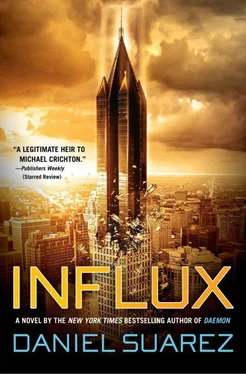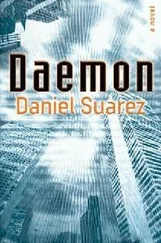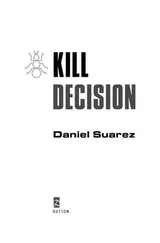The CIA guy nodded. “Our science people estimate they have a fifty- to sixty-year technological edge. And it’s accelerating. But hey, look at the bright side: They’ve been smoothing out the bumps for more than fifty years now. And it doesn’t look like they’ll allow a nuclear war to take place—and don’t even ask why I know that because I can’t tell you. Suffice it to say that they’re keeping an eye on the long-term picture—do you want that job? Because I know I don’t. I’ve got my hands full just putting out fires.”
“No one should have so much power.”
“They already know what you’re up to.” He pointed at McAllen. “You sent Bill up there, and they gave you their answer.”
At that they all turned to McAllen.
Monahan drummed her fingers on the table. “Well, Bill, you’re the only one who’s seen this Graham Hedrick person. What’s your read on him?”
McAllen stroked his chin. “I wouldn’t say I saw him, but I saw an image of him.”
“All right then, what’s your read on that?”
“He was full of himself. Didn’t seem the least bit concerned about what we did or did not do.”
“What do you think will happen if we let them be?”
McAllen took a deep breath. “I think their technological lead will grow, and they’ll be in a position to dictate the course of human events for generations to come. And I think that’s not okay. Not okay at all.”
The Twins gave Davis the creeps.That’s what she’d taken to calling the nearly identical tall, blond, muscle-bound men with thick necks who supervised her on the special task force. They were, in fact, the only members of the task force she’d seen thus far. One was named Todd, the other Jason. In their mid- to late twenties, they nonetheless wielded authority as if they’d been born to it. As if those around them were truly their inferiors—like some FBI version of the Winklevoss twins. And she had never heard of twins working together in the FBI. These guys were clearly jacked in with Washington because they seemed to operate without having to clear things with anyone. Neither did they have budgetary problems. And they’d requisitioned her from the middle of preparations for a major public trial without so much as a peep from her bosses.
She and the Twins were sitting in a suite of windowless offices in Columbia University’s International Affairs Building at the corner of Amsterdam and 118th Street—a ten-story concrete building that seemed to have been modeled on a steam radiator. It was located on the far side of the Morningside campus from where she was supposed to meet Grady. They’d kept a very low profile for the past two days.
As Davis sat, bored, the Twins both talked on cell phones with unseen elements of the task force, finalizing details. Apparently they had people out there somewhere who were ready to back her up on a moment’s notice. Still, the asymmetry in information was alarming. They hadn’t told her a goddamn thing since she’d arrived.
One of the Twins hung up. She could never tell them apart. Even when they reclarified their names, it quickly devolved into a game of “two-card monte” the moment they moved. She cleared her throat and looked at her watch. “So it’s seven thirty now. It’ll take me fifteen minutes to walk there; I need to be briefed.”
Todd—or Jason—looked confused but then nodded. “Right. Agent Davis, we really just need you to go to the meet. You know the route to the Mathematics Library. You’ve seen the floor plan, and you’ve seen the photographs of the table you’re to sit at.”
“Yes, but I was told he was a dangerous suspect.”
Todd nodded. “Okay.” He shrugged. “Then be careful.”
“I don’t know where my backup is. We haven’t gone over radio protocols, emergency signals—”
“Not necessary.”
She threw up her hands in exasperation. “I’d like a little reciprocity. I convinced this Grady guy to come here for a meeting. Now maybe you can tell me how the hell it is he’s still alive, and what that means to the very high-profile criminal prosecution I’m part of. I mean, I charged Richard Cotton with Grady’s murder, and now I’m going to meet Grady. Do you see why I might need to know what’s going on?”
He gave her a blank look. “No.”
“Toss me a bone, Todd. Or Jason.”
“The only thing you need to know is that this is a matter of national security.”
“I’ve been chasing Cotton for years. I need to know how he’s connected to Grady—how he’s really connected to him.”
“It might interest you to know that the SAIC of the Newark office has recommended you for promotion. We can make sure you get transferred to Denver. Is that where Tracy is? Your girlfriend?”
She was taken aback. “How do you know I want to be transferred to Denver? How do you know about Tracy?”
He just stared at her. “Just do your job. Help us capture Mr. Grady without incident, and you’ll be well thought of in high places. And that’s how the world works. Are we clear, Agent Davis?”
She just stared.
“We have the math library wired. And we’ll have eyes on you at all times. Armed agents will be seconds away.”
“But no one undercover in the library itself?”
He shook his head. “Not necessary.”
Another glance at her watch.
“You probably won’t even meet him. We have spotters for blocks in every direction. The moment he appears, we’ll grab him.”
Davis tried to think of any last questions. “And how do I know when it’s over?”
“We’ll call your cell. Then we put you on a plane back to Chicago. You get promoted. And after the trial you get transferred to Denver, to live out your alternative American Dream.” He stared at her expectantly.
She nodded absently.
“Nice working with you.”
• • •
Davis had expected the Columbia University Mathematics Building to have an actual name. A name other than Mathematics Building. But apparently mathematicians weren’t as poetic as all that. Or no one had ponied up the dough for naming rights, and since it was one of the oldest buildings on campus—having been built in the 1890s—it was unlikely anyone would now.
The building was a stately neoclassical four-story redbrick structure accented with granite. Davis had been able to discover that the Mathematics Library was a specialized collection—not part of the main campus library. It was also one of the few libraries on campus without ID check-in. This seemed relevant. Why Grady had chosen this place among all places to meet had preoccupied her and Falwell for quite some time, and this was a likely cause.
While it was true Grady hadn’t attended Columbia, his business partner in Chirality Labs, Bertrand Alcot, had been head of the Columbia physics department for decades—his office not a hundred yards to the north in Pupin Hall. Grady no doubt spent time here on an unofficial basis—he was arrested for trespassing at one point. The charges were dropped, and that was probably due to the friendly intervention of Professor Alcot.
Davis would have done more research, but the Twins didn’t seem to want her thinking any more than necessary.
She glanced at her watch as she approached the building’s main entrance. Seven fifty-four. A few minutes early. She took a few moments to read an oxidized bronze plaque on the side of the building and was surprised to learn that this had been the site of the Battle of Harlem Heights in 1776. A valiant loss for George Washington. She wondered if other countries commemorated their losses.
Edified, Davis entered and headed up the stairs and to the left. The math library was a modest utilitarian space, a long narrow room with desks and study tables running along a wall punctuated by tall, shaded windows that had a good view down onto Broadway. The stacks were toward the back and around the corner, dimly lit, narrow, and crammed, no doubt, with esoteric math tomes. A few computer workstations stood against the back wall, also unoccupied.
Читать дальше












